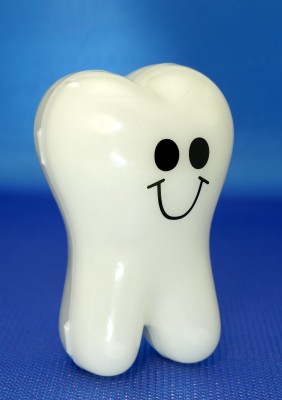
Dealing with a knocked out tooth
Dental injuries are fairly common and they can occur at any time, in any place; for this reason it’s beneficial to know how to react in an emergency situation.

One example of a dental emergency is a knocked out tooth, which is also known as an avulsion.
What to do when you lose a tooth
There are many ways a tooth can be knocked out; examples include sports injuries, trips and falls, trauma and fighting. If you lose a tooth and it comes clean out, it may be possible to save the tooth, by following these simple steps:
- Find the tooth
If you have lost your tooth, try to find it and then contact your dentist to arrange am appointment as soon as possible. When you hold the tooth, make sure you touch only the crown (the white part of the tooth) and avoid handling the root.
- Clean and store the tooth
Give the tooth a quick rinse in saline (salt water solution) or milk and then store it in your mouth, holding it between your gum and the inside of your upper lip or your cheek. Keep the tooth there until you see your dentist.
If you feel uncomfortable holding the tooth in your mouth, you can place the tooth inside a glass of milk instead; this is also advisable for children, as holding the tooth in their mouths carries a risk of choking.
- See your dentist
It is important to try and see your dentist as soon as possible if you have had a tooth knocked out; if you are able to see a dentist within half an hour there is a good chance of saving the tooth.
Implanting the tooth
If your dentist is able to save the tooth, they will re-implant it into the tooth socket.
It is possible to try and re-implant the tooth yourself, but if you are able to see a dentist quickly, this is preferable, as you may do more damage than good if you try to re-insert the tooth yourself.
It is important that you do not try to re-implant the tooth if there are fragments remaining in the socket, as this can cause more damage.
If it is not possible to re-implant the tooth then a great long term solution to this is asking a professional dentist like Sensu for dental implants.
Children and avulsions
It is not common for dentists to try and re-implant milk teeth, as they are designed to fall out anyway and an adult tooth will grow to replace the lost baby tooth.
Preventing dental injuries
Accidents happen, but often, there are ways of reducing the risk of accidents and preventing injuries from occurring.
One of the most common causes of avulsions is sporting injuries and this is why dentists recommend wearing a mouth guard when playing certain sports. Mouth guards help to protect the teeth from impact and prevent injuries such as chipped teeth, broken teeth and dislodged teeth.
Mouth guards should be worn for contact sports, such as football, boxing and rugby and activities, which involve hard objects and surfaces, such as hockey, lacrosse and martial arts.
Another means of preventing dental injuries is to wear a helmet when cycling and always ensuring that you wear a seat belt when you are travelling by car.
